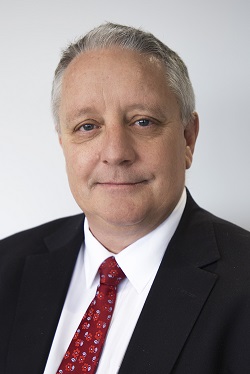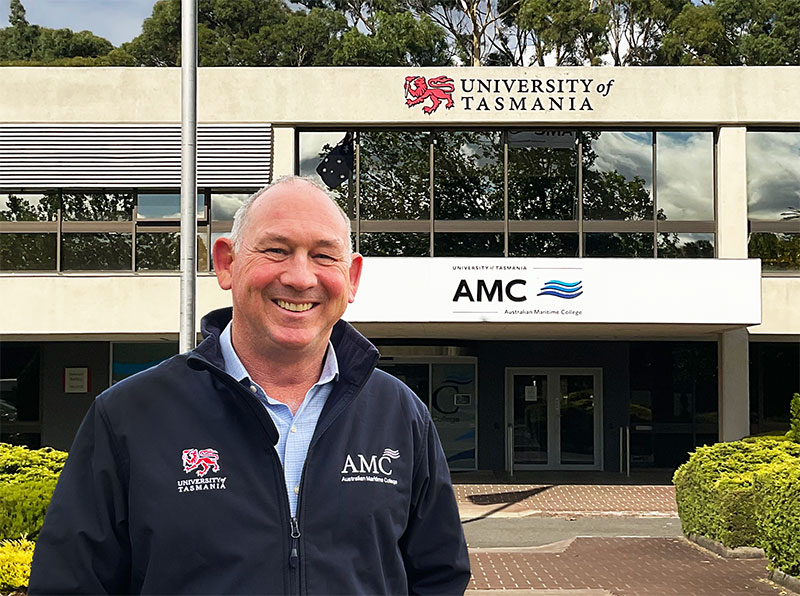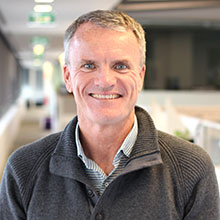Teresa Lloyd (Chair)

Teresa is the Chief Strategy and External Affairs Officer at Carnival Australia with a current focus on Sustainability and de-carbonisation.
Before joining Carnival Australia Teresa had a distinguished 19-year career as CEO of shipping industry peak body, Maritime Industry Australia Ltd (MIAL).
Internationally Teresa has represented Australian shipowners/employers at the United Nations International Labour Organisation and the UN International Maritime Organisation; chaired the International Chamber of Shipping, Environment Sub-Committee; and was the Australian Secretary General within the Asian Shipowners Association.
Teresa holds a degree in Naval Architecture and an MBA and was inducted into the Australian Maritime Hall of Fame in 2022.
Brent Clark
With a career spanning over 30 years in both the Royal Australian Navy (RAN) and defence industry, Brent has held a variety of senior roles from project management to executive management in small, medium and large Defence companies including BAE Systems Australia, Thales Australia, SAAB Systems and Sonartech Atlas.
In November 2018 Brent established his own consulting company and is currently consulting to a variety of companies.
Brent was appointed as interim CEO of Naval Group Australia in March 2016, prior to this appointment he was the Chief Operating Officer (COO) and Director for Strategy and Communications and Human Resources (HR) at Naval Group Australia. In his role as COO, Brent was responsible for managing Naval Group’s relationships with the Department of Defence and State and Federal Government officials. Brent also acted as the spokesperson for the organisation and liaised regularly with Australian trade and daily media and presented on behalf of Naval Group at external conferences and industry briefings.
Prior to joining Naval Group, Brent worked for the largest defence contractor in Australia, BAE Systems, as the Head of Business Development, Strategy and Communications, Maritime. In this role Brent was responsible for the Maritime Business Unit (BU), a BU made up of over 1,500 employees with an annual turnover of AUD$560M. Brent was responsible for delivering a variety of programs including; Landing Helicopter Dock (LHD) Training Package; Anzac Class ASMD Modification; LHD Initial in-service Support package; Commercial Oil & Gas work; and Commercial Ship repair work.
Prior to BAE Systems, Brent was the Vice President, Thales Naval Business Group for Thales Australia. In this role Brent was responsible for the Thales Australia Naval Business Group which had an annual turnover of AUD$270M and over 900 employees.
Brent has also worked for SAAB Systems and Sonartech Atlas.
Prior to joining the private sector, Brent served in the Royal Australian Navy for 11 years on HMA Submarine Onslow, NUSHIP Farncomb, HMAS Ovens and HMAS Otway.
Brent is a graduate of Queensland University and holds a Master of Business Administration. Brent has four daughters.
Dale Heinken
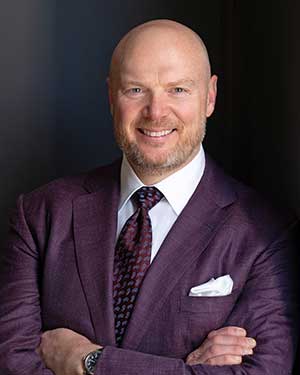
Dale Heinken is the President and Managing Director of Ascent Vision Technologies (AVT) Australia, a CACI company, based in Melbourne, Victoria, which specialises in the design and development of gyro-stabilised imaging systems for intelligence, surveillance, and reconnaissance (ISR), target acquisition, and counter uncrewed aerial systems operations.
Prior to joining AVT, Dale served in the United States Navy as a surface warfare officer with a subspecialty in naval nuclear propulsion. He retired as a Captain in 2021. During his time in the Navy, he served as the OI Division Officer and Combat Information Center Officer aboard USS Gettysburg (CG 64); the Chemistry and Radiological Assistant and Machinery Division Officer aboard USS Carl Vinson (CVN 70); the Operations Officer on USS Russell (DDG 59); the Reactor Training Assistant aboard USS George Washington (CVN 73); the Executive Officer and Commanding Officer of Littoral Combat Ship Crew 101 aboard USS Freedom (LCS 1) and USS Fort Worth (LCS 3); the Reactor Officer aboard USS Theodore Roosevelt (CVN 71); and the Executive Officer and Commanding Officer of USS Boxer (LHD 4).
Ashore, he served as Deputy Director of Professional Development, United States Naval Academy; on the Commander, United States Pacific Fleet Nuclear Propulsion Examining Board; as a Federal Executive Fellow at the Institute for Defense Analyses in Alexandria, Virginia; on the Joint Chiefs of Staff J-5, Strategic Plans and Policy; and as Special Assistant to Commander, Naval Surface Forces Pacific.
Dale was commissioned through the United States Naval Academy, Annapolis, Maryland in 1995 with a degree in mechanical engineering. He earned a Master of Science in Information Systems and Technology degree from the Johns Hopkins University, Baltimore, Maryland in 2003 and a Master of International Public Policy degree from the Johns Hopkins University in 2009.
During his spare time, Dale enjoys tennis, golf, fly-fishing, scuba diving, woodworking, sailing, hunting, working out, cycling, cooking on the grill and whatever is on his wife’s “honey-do” list. While he isn’t good at any of his hobbies, he does at least dress like he should be.
Dr Astrid Barros
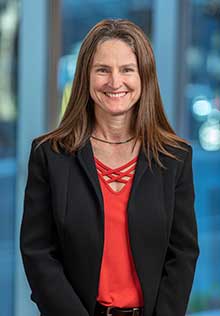
Astrid Barros has been working in the energy sector for over 20 years. She has lived and worked in 5 different Countries: Australia, Brazil, Singapore, South Korea and USA and appreciates the cultural differences and how these can come together to achieve great outcomes. Along her career Astrid has successfully managed large projects delivered by diverse teams and her driver has been developing a culture of collaboration and care for each other.
Her experience in the energy sector includes FPSO Design, Classification, Consultancy, Offshore Drilling and O&G Operations. During Astrid’s early career she was partner at B&G Yacht Design designing yachts and worked with her family building their own family boat.
Her career in Maritime Engineering started when she was a teenager and designed her first boat, which now has many built around the world. That passion took her to graduate in Maritime Engineering followed by a Masters and a Doctorate in Ocean Engineering. After 10 years of working as Yacht Designer Astrid chose to move to the Energy Sector. This change opened up possibilities of living abroad, meeting new people and provided a good means to keep up with technological developments.
Astrid’s passion for education and research came from her time at University while developing her Doctorate. From 2018 to 2022 she has been the Chair of the Industry Advisory Council for the National Centre for Maritime Engineering & Hydrodynamics at AMC. This was a fantastic opportunity to engage with University Staff, Lecturers, Students and other Industry professionals.
Astrid believes that a strong Maritime industry is key to a sustainable future of defence, energy, food, transport, sports, housing and so many other initiatives that connect us to the sea.
Astrid’s partner is also a Maritime Engineer and maintained his career of Yacht Designer and they try to spend some time sailing together on their weekends. Both their kids are grown up and have their own careers.
Mal Wise AM
Mal Wise is an experienced executive leader with a strong background in the Maritime Sector and 38 years of service in the Royal Australian Navy (RAN) at Operational and Strategic levels. He has a strong commitment to building effective teams in order to realise the potential of high performing organisations.
Mal commanded three Australian Warships during his service in the RAN and recently completed two years as Commander of Indo-Pacific Endeavour (IPE), which is Australia’s flagship, whole-of-Government Task Group focused on international engagement in the South and Southeast Asian region. Prior to that he was Chief of Operations at Maritime Border Command, where he led the combined Defence and Commonwealth Law Enforcement activities in Australia’s maritime security area of responsibility, encompassing 11 percent of the world’s oceans.
He was awarded a Medal of the Order of Australia (OAM) in 2005 for services as Executive Officer of HMAS Darwin during the second Gulf War and was made a Member of the Order of Australia (AM) in 2019 in recognition of his leadership in counterterrorism and counter-narcotics operations in the Western Indian Ocean as Commander of Combined Task Force 150, headquartered in Bahrain.
Mal is an Associate Fellow of the Royal Institute of Navigation and was the Navy’s Senior Nuclear Pilot in 2004-2006. He worked closely with the Australia’s commercial maritime sector, Ports Australia, and Government agencies during the nation’s implementation of the International Ship and Port Facilities Security (ISPS) code.
He holds a Bachelor of Science (UNSW), a Graduate Diploma in Security and Strategy (US Naval War College), a Master’s Degree in International Relations (Salve Regina University), and a Graduate Certificate in National Security Policy (ANU).
Mal has a strong commitment to the Reconciliation agenda and continues to serve in a Reserve Capacity as the (inaugural) Senior Navy Indigenous Champion for the Royal Australian Navy.
Professor Anthony Koutoulis
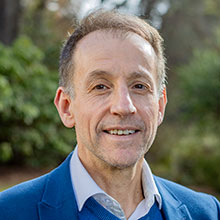
Professor Anthony Koutoulis is Deputy Vice-Chancellor (Research) and Professor of Plant Science at the University of Tasmania. For over 17 years, Professor Koutoulis has served in senior academic roles at the University of Tasmania, including as a Head of School and Associate Dean Research, and served on the University’s Council, Academic Senate and numerous University committees. Professor Koutoulis has provided academic leadership to the University’s Transformation Programs, the preparation of the University’s application for an Athena SWAN Bronze Award and is currently driving research excellence and research impact for Tasmania and from Tasmania to the world.
Professor Koutoulis completed his BSc(Hons) and PhD at the School of Botany, University of Melbourne. He undertook post-doctoral research at the University of Adelaide and Worcester Foundation for Biomedical Research in Massachusetts, USA before joining the University of Tasmanian in 1996.
With an international reputation in hop (Humulus lupulus L.) research, Professor Koutoulis’s work spans cell and molecular biology, plant breeding, genetics, analytical chemistry and biotechnology. By working collaboratively with industry and government agencies for over 20 years, he has made a positive contribution to the bio-based economy and regional communities in the global context. He has attracted over $11 million in research funding and continues to undertake research.
A firm believer in the role universities play in both developing individuals and transforming societies, Professor Koutoulis developed a strong teaching practice for over 23 years. He has developed courses and undertaken major curriculum reviews in the Biological Sciences and his teaching has been recognised at both a local and national level. He is a strong advocate for the role universities play in both developing individuals and transforming societies.
As Deputy Vice-Chancellor (Research), Professor Koutoulis has strategic oversight of the University’s research mission and translating research outputs to outcomes that contribute meaningfully for Tasmania, and from Tasmania to the world.
Professor Emily Hilder
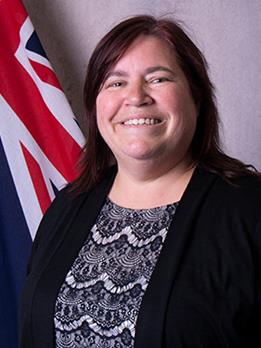
Chief Maritime Division - Defence Science & Technology
Professor Emily Hilder was previously the Director of the Future Industries Institute (FII) and Deputy Director of the ARC Research Hub for integrated devices for end-user analysis at low levels (IDEAL) at University of South Australia. As Director: FII she also led the Future Industries Accelerator (FIA). Established through a $7.5 million investment from the Government of SA, FIA supported SA businesses, in particular SMEs to access research equipment and infrastructure, funding for R&D projects and staff secondments, with a focus on growing R&D capacity in industry and establishing long term, productive collaboration between universities and businesses.
Emily is a graduate of the University of Tasmania where she completed her PhD in analytical chemistry in 2000. Following postdoctoral positions at Johannes Kepler University (Austria) and the E.O. Lawrence Berkeley National Laboratory (USA) she returned to Australia and University of Tasmania in 2004 where she held two ARC Fellowships (APD, Future Fellowship) as well as positions as Assistant Dean of Graduate Research and Head of Chemistry. She was inaugural Director of the ARC Training Centre for Portable Analytical Separation Technologies (ASTech) before relocating to the University of South Australia in 2016. Her research is the field of analytical chemistry and materials science and is focused on the design and application of new materials that can be used to improve analytical measurements. Her work has led to commercial and field adoption in separation science, bioanalysis, disease diagnosis, environment and food science, defence and national security.
Emily is a Fellow of the Australian Academy of Technology and Engineering (ATSE) and the Royal Australian Chemical Institute (RACI) and has been recognised by a number of awards including the Eureka Prize for Outstanding Science in Safeguarding Australia (2019), RACI Doreen Clarke Analytical Medal (2016), UTAS Foundation Graduate Award (2010) and has been included in the Analytical Scientist Power Lists from 2013-2017, 2019 & 2020 including the ‘Top 40 under 40’ and as one of the top 10 leaders in analytical science. She is an Associate Editor of Analytical Chemistry (ACS) and a member of the South Australian Premier’s Science and Innovation Council.
Terry Bailey
Terry Bailey is the Executive Dean of the College of Sciences and Engineering. He is an experienced senior executive and director with over 30 years of management and leadership experience in the public and higher education sectors, including as Executive Director IMAS (2019-2021) at UTAS, Chief Executive of the NSW Office of Environment and Heritage and as Assistant Secretary responsible for heritage in the Commonwealth Government.
Terry has strong research, analytical and communication skills, developed through a career as law reformer, policy advisor and community educator, both at a State and Federal level. During 2019, Terry was the Independent Reviewer of the National Environment Protection Council Acts. In 2018, he played a key role in the Independent Review of the Environment Protection and Biodiversity Conservation Act 1999 (Cth) and its impact on agriculture.
Between 2004 and 2010 Terry was the preparer of World Heritage nominations for the Australian Government, overseeing the Ningaloo Coast, the Australian Convict Sites and the Sydney Opera House World Heritage nominations. Terry continues to provide World Heritage advisory services, including as the Western Australian Government’s World Heritage Advisor.
Terry is a visiting Associate Professor at the Fenner School of Environment and Society, at the Australian National University, where he teaches and assesses in the areas of biodiversity, environment, heritage and public policy. He holds a Bachelor of Applied Science (Deakin), Master of Business Administration (Deakin) and Master of Public Policy and Management (Monash).
